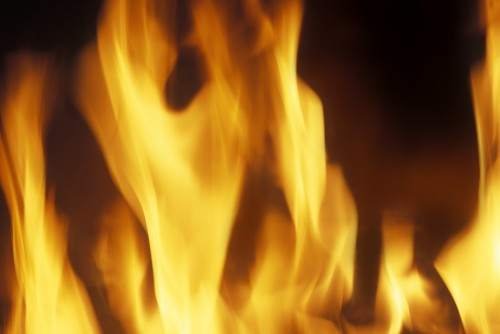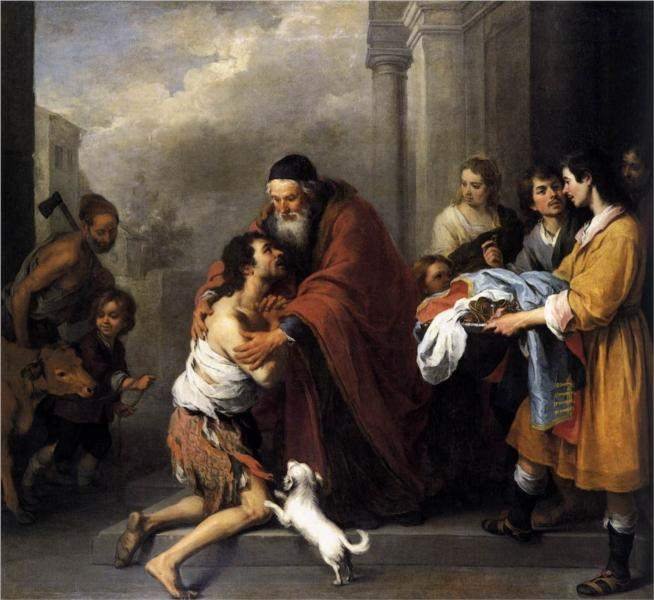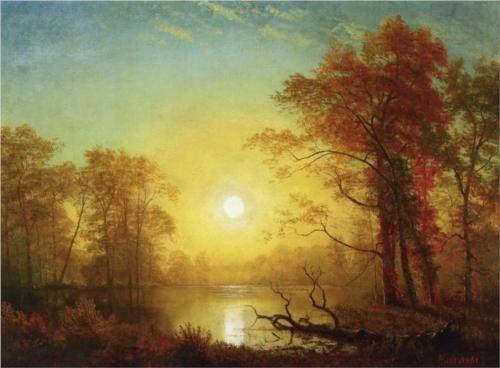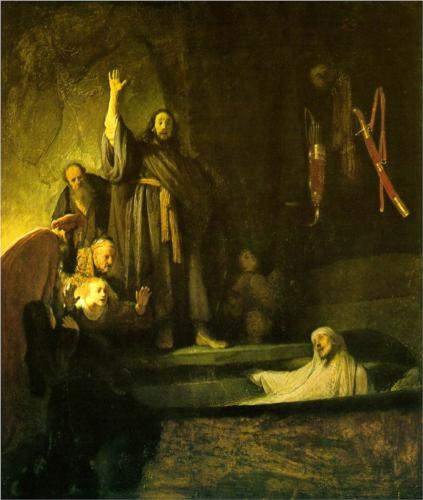My reckless path over the past months had left my way littered with a lot of brokenness — not least of all my own. The most gracious Healer had been to my bedside — but still I shut Him out of my heart, the most wounded part of all.
Though I’d made a miraculous recovery from my accident, I was still, for the first few months after coming home from Ohio, in need of a lot of attention. I relied on my parents, especially my mother, to get myself to class every day (that one class I insisted on taking), and to doctor’s appointments, and to social gatherings, and for anything else I needed or thought I needed. I wish I could say that I was a grateful and cooperative patient, but the truth is that I wasn’t — especially the more she and I came to talk about God and religion.
To my friends, too, I was becoming intolerable. I felt the need to talk about my accident ad nauseam, to tell everyone I spoke to about it. I appreciated the loving concern that so many people had shown me, so much that I thought I deserved it and could selfishly demand it. What is worse, I began to grow angry: angry at the truck driver, and at the circumstances, and at God, for taking away my car and my freedom; angry at my parents for not bowing to my every whim and demand; angry at my friends for not making me the center of their universe.

Mouths swell with anger, veins grow black with blood (Ora tument ira, nigrescunt sanguine venae) (Anger from the Seven Deadly Vices), by Peter Bruegel the Elder (1558).
One friend in particular came to bear the brunt of my anger. The harder I pushed and the more attention I demanded, the further she drifted. I do not blame her at all, in retrospect, for what happened: she, too, broke off contact with me. I was infuriated. Never before in my life have I been, and I pray I never will be again, so filled with rage. It is true — I learned firsthand — that Wrath is a Deadly Sin — because as the days and weeks wore on, this blaze grew higher and higher, and consumed more and more of me. My mind was filled with horrifying, violent thoughts to the point of hatred. And it was killing me. My performance at school, my relationships with family and friends, even my health, was becoming unhinged. I was self-destructing.
And then, everything changed.
It started with a phone call. Halloween night, a caring, Christian friend called to check on me, to see how I was recovering since the accident. But she wasn’t doing so well herself, struggling with health issues of her own. She said that she was praying for me. I said, reflexively, as my twenty-five years of Christian upbringing had taught me, that I would pray for her, too.
But as I hung up the phone, I realized that I was lying. I wouldn’t pray for her; I didn’t pray at all, and hadn’t in many months. Going to sleep that night, I resolved to do something about that, for my friend.
The next day, remembering my resolution of the night before, I unceremoniously knelt down in my bedroom to pray. And suddenly I found myself face to face with the Most High, the God I had been actively avoiding and running from and pushing away for the past six months. I stammered. What could I say for myself? Here I was to make a request of Him, and I had hardly spoken to Him or acknowledged the priceless gift of life He had already bestowed. Feebly, I fumbled, “I know I should probably get back into a church one of these days…”
My friend’s simple act of charity, her kind words and her concern, had been but a drop of moisture; but it reminded me in a distant way of the Font from which all mercies flow. My own simple gesture, reaching out to pray for her, was, however small, an acceptance of His grace and an act of His love. And with this drop of water on the parched soil of my soul, the rain gently began to fall. It came as soothing droplets to my burning heart; like the first trickle from the floodgates into a scorched riverbed.
There have only been one or two times in my life when I have heard God’s voice clearly and absolutely. This was one of those times. It came like a thunderclap that knocked me to the floor. The words were almost audible as they formed in my mind, in answer to my halfhearted offering: “Go back to Calvary. This Sunday.”
Calvary: the church I grew up in, towards which I’d held so much anger and bitterness for years; the place I blamed for failing me in my time of need and leading me down a dead-end path. If there was anything I would have expected God to say, anywhere I would have expected Him to send me — that would have been the very last place. When I’d suggested going back to church, it was more an excuse than an intention: I didn’t have the slightest idea when or where I would ever go back to church, or much of a motivation to do so — but I absolutely had no thought of going back there. But suddenly, out of the ether, I had an answer, the last one I would have ever chosen for myself. It hit me not as a passing thought; not as an idea desperate or compromising that I struggled against or had to wrestle with to accept; but as an unambiguous, authoritative command that it never even occurred to me to question. “Yes, Lord; I will obey,” is all I could answer.
It was November 1, All Saints’ Day. I did not celebrate it then, but I was aware of the fact.
The last time I’d been made to go to church with my parents, I’d scowled and grumped through the whole service. That Sunday morning, to their surprise, I volunteered. This time, my attitude was entirely different: I was hurting; I was starving. From the moment I entered, I had the feeling of coming home; of comfort and security. As the call was given to come down to the altar, I all but ran. As I knelt there, and one of the pastors, and my parents, laid their hands on me and prayed for me, the tears began to flow. A sense of peace came over my restless heart. The thorns of anger and pain and hate I’d allowed to dig into my heart, the barbs of hurt and bitterness and unforgiveness that had bound me for so long — began to slip away.
It was a night and day difference — the night of my darkness and waywardness and confusion, and the day of His light and warmth and guidance. The shadows lifted, and I began to see the road again, the way out of my ravine. The next days or weeks or months were not easy — there was so much I’d allowed to take over my life that needed to be rooted out, and it was painful going — but I continued to pray and seek God’s face. I continued going to church at Calvary with my parents. But about a week after that first time, I drove out to the country to be alone with my Bible and Every Man’s Battle. There, tearfully, I finally laid down my fight, humbled myself, and surrendered my life wholly to God, for probably the first time ever.
I believe that my accident was a kind of baptism by fire; that my restoration mirrors the new birth in Christ that a Christian experiences at his baptismal regeneration. I believe in some small measure, I tasted Christ’s Resurrection power — that on that day I stood at the threshold of death’s door, and was brought back. I believe that every Christian does: this is Christ’s power over Death and the Grave that every Christian receives at baptism as the old man is buried and the new man is raised up in new life. I believe I was given a tangible sign, a sacramental experience, by which the invisible, spiritual transformation was writ large in visible, physical actions.
I still don’t know why God spared me that day, but I am grateful every day for the opportunity to find out and for the life I’ve been given. I live every day in the faith that God has some purpose and calling for my life, some reason for keeping me here. The road ahead wasn’t always smooth. I made a good many wrong turns, and had a few more minor collisions (spiritually speaking). But I was on the road again.









Very moving. This post is so thought provoking and beautifully constructed. Given me lots of food for thought.
Thank you. This is the part in my story that it becomes very immediate and emotional. The past six years have been transformative in every way.
I think I see one of the reasons you were spared – to be a blessing to others 🙂
Thank you so much, dear friend. <3
You are most welcome – I am greatly blessed by reading you, and I know others are too 🙂 x
I second this! 🙂
🙂 hurrah!
Pingback: The Sovereignty of God, or, My Brush with Calvinism, Part 1 | The Lonely Pilgrim